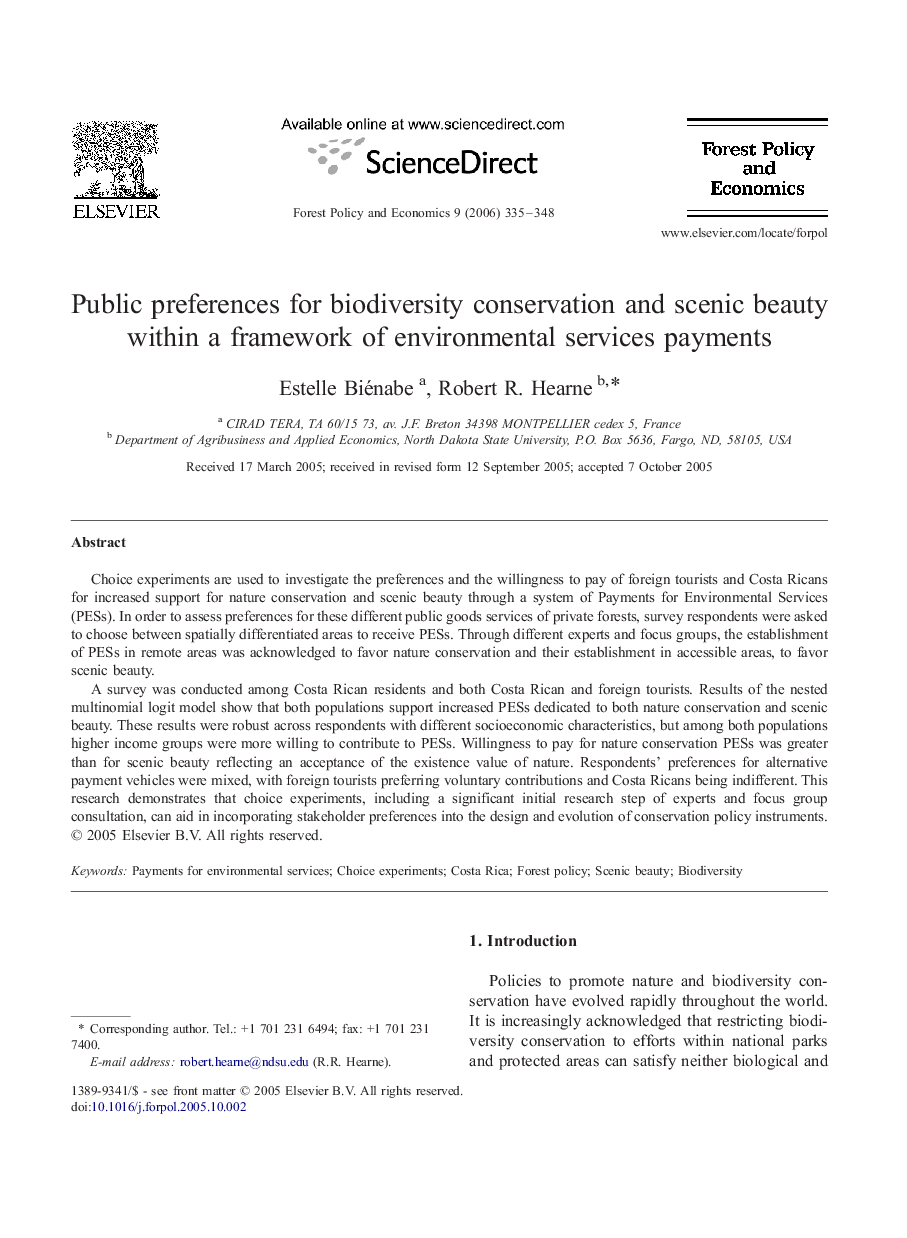| Article ID | Journal | Published Year | Pages | File Type |
|---|---|---|---|---|
| 91385 | Forest Policy and Economics | 2006 | 14 Pages |
Choice experiments are used to investigate the preferences and the willingness to pay of foreign tourists and Costa Ricans for increased support for nature conservation and scenic beauty through a system of Payments for Environmental Services (PESs). In order to assess preferences for these different public goods services of private forests, survey respondents were asked to choose between spatially differentiated areas to receive PESs. Through different experts and focus groups, the establishment of PESs in remote areas was acknowledged to favor nature conservation and their establishment in accessible areas, to favor scenic beauty.A survey was conducted among Costa Rican residents and both Costa Rican and foreign tourists. Results of the nested multinomial logit model show that both populations support increased PESs dedicated to both nature conservation and scenic beauty. These results were robust across respondents with different socioeconomic characteristics, but among both populations higher income groups were more willing to contribute to PESs. Willingness to pay for nature conservation PESs was greater than for scenic beauty reflecting an acceptance of the existence value of nature. Respondents' preferences for alternative payment vehicles were mixed, with foreign tourists preferring voluntary contributions and Costa Ricans being indifferent. This research demonstrates that choice experiments, including a significant initial research step of experts and focus group consultation, can aid in incorporating stakeholder preferences into the design and evolution of conservation policy instruments.
